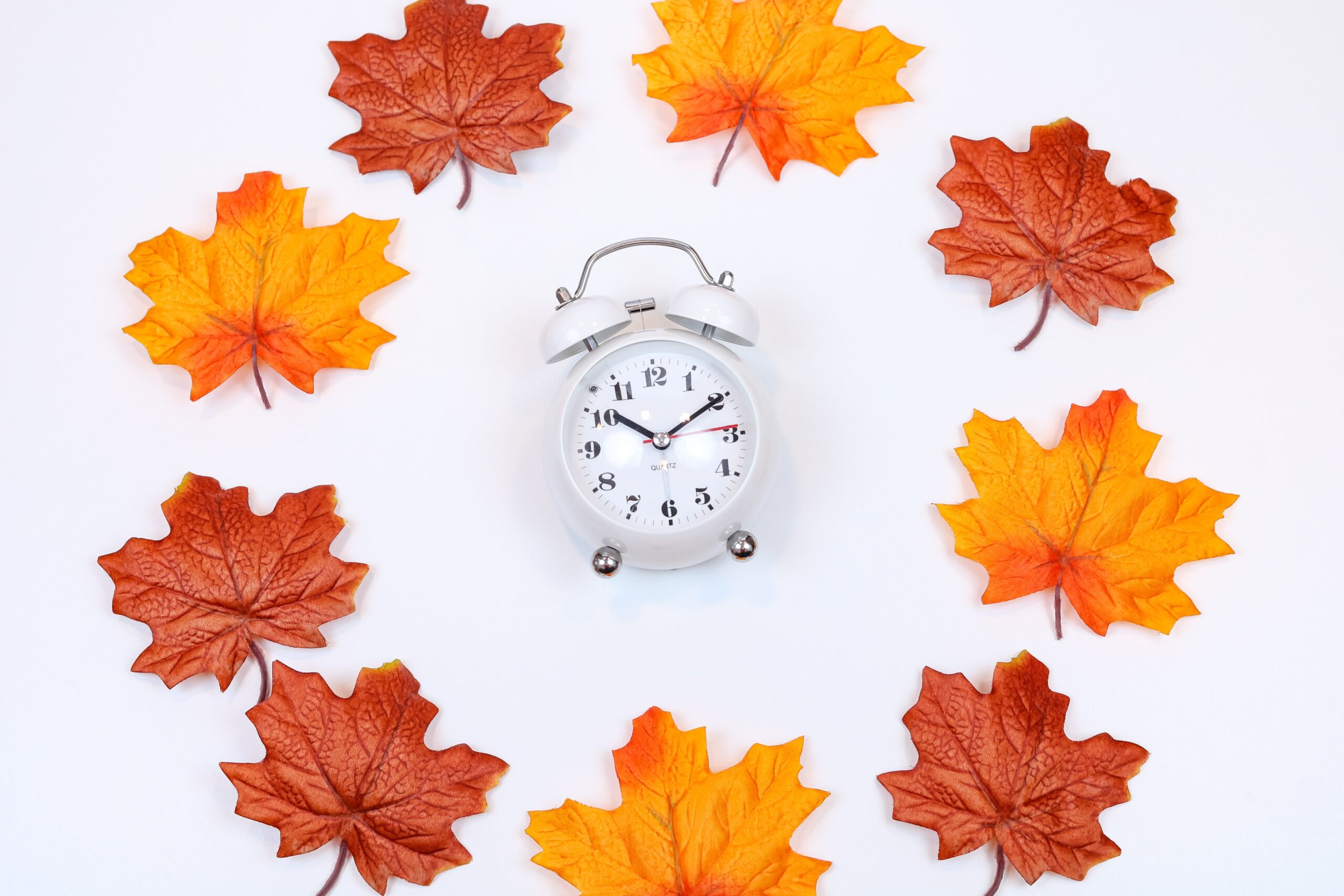It’s that time of the year again! The weather is getting colder, the trees are finally changing colors and we are entering in the holiday seasons. It is also the end of the Dayligth Saving. All the clocks will move one hour early on November 5th, 2023 for the USA and Canada. Daylight Saving in Europe was October 29th, 2023.
Every year, every moms are questioning about Daylight Saving and what to do with their children’s sleep. Does that means they will wake up earlier than they already do?
If you are wondering what to do with your baby’s sleep or you struggle to adjust your child’s schedule to the new time change, keep on reading!
How does daylight saving affect your baby’s sleep?
Your baby has an internal clock called the circadian rhythm. As your baby grow, their circadian rhythm will adjust and will start to understand day and night. It will also help their body produce the right hormone at the right time. When it is time to go to sleep, your baby’s body will produce melatonin to encourage sleep, and cortisol in the morning to encourage the wake up.
When daylight saving comes, the clocks move one hour early but your baby’s body is still set to the old time. That means you baby is more likely going to wake up an hour early. A lot of parents get confused on what to do and try to avoid the early wake ups.
How to adjust your baby’s schedule to daylight saving?
There are different methods you can use to adjust your baby’s schedule. All methods are great, and will depend on what you feel more comfortable using for your baby and your family.
Option #1: Do nothing
Some children are really adaptable to changes and won’t be too disturbed by the daylight saving. What you need to do is simply following the clock and keeping the same routine like nothing changed.
Option #2: Gradual change 15min
If the idea of changing your baby’s schedule is freaking you out, you can slowly adjust it by increasing wake windows 15 min each day.
For example: your baby’s day starts at 8am and bedtime is at 8pm.
Wednesday: wake up time is at 8am and bedtime at 8pm
Thursday: start to push naps and bedtime 15min later.
Naps will be 15min later and bedtime will be at 8:15pm.
Friday: push naps and bedtime 15min later than the previous day.
Bedtime will now be happening at 8:30pm.
Saturday: repeat the same process.
Bedtime will be at 8:45pm.
** clocks run back 1h**
Sunday: you should be back to your old schedule following the new time.
If your are following the summer time, bedtime should be happening at 9pm (+15min from the previous day).
But since the clocks moved one hour early, it’s actually 8pm aka your desired bedtime.
Option #3: Gradual change 30min
The idea is to follow the Option #2 method but you need to increase the wake window by 30min.
Instead of starting on the Thursday, you can start Friday or Saturday if you want the schedule to be adjusted on Sunday.
Example:
Friday: push naps and bedtime 30min later than the previous day.
Bedtime will be at 8:30pm instead of 8pm.
Saturday: push naps and bedtime 30 min later than Friday.
Bedtime will be at 9pm.
** clock run back 1h**
Sunday: simply follow the clock!
If you feel like this will be too many changes in a short period of time, you can add a day in between changes for both the option #2 and #3. It will allow more time for your baby’s body to adjust. Keep in mind that it will also take longer to have the desired bedtime with the time change.
If daylight saving already happened and you feel like your baby is still stuck on the old schedule, you can still utilize the option #2 and option #3.
Tips for helping your baby adjust to the time change
- Expose your baby to the natural daylight morning and night. The sunlight will help adjust your baby’s circadian rhythm naturally. Keep it dark for naps and bedtime.
- Maintain a consistent bedtime routine. Bedtime routine is a sleepy cue for your baby’s brain.
- Be patient. It takes time for our body to adjust to new schedules. Keep in mind that your baby may need a full week before adjusting completely.
- Remember help is available. You don’t have to be stuck forever with early morning wake ups your whole life – or until spring daylight saving comes!
Daylight saving with newborns
For newborns up to 3-4 months old, keep following your baby’s sleepy cues and wake windows. Newborns don’t really have a circadian rhythm yet. It actually starts to develop around 3month old.
Forget that daylight saving exists and keep exposing your baby to the natural light. Their body will slowly adjust to the new time. Be consistent in your baby’s routine.
Pushing wake windows later for younger babies will cause your baby to be overtired, which results in short naps, early morning wake ups, multiple wake ups at night and fussy fuuuussy baby!
Bottom line
Changing your baby’s schedule always seems scary but it doesn’t have to be. Be patient and don’t overthink it. Sometime the best solution is to actually forget about it and keep on going with normal life.
If you feel like things aren’t going the way you’d like and you feel stuck, please reach out to us and we will help you!

View comments
+ Leave a comment